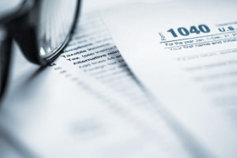Should A New Tax be Placed on Alcohol to Help Fund the Treatment of Substance Abuse

The city of Boston is considering new 1 percent to 2 percent tax on all sales of alcohol. The funds generated by the proposed tax increase would purportedly be earmarked for substance abuse programs
Proposed Alcohol Tax
A recent online Boston Globe article reported paperwork was filed by two Boston city councilors to initiate a process that ultimately could result in a tax on alcohol sales citywide. The expected millions of dollars in revenue, as part of the proposal, are to be earmarked exclusively for substance abuse treatment and prevention programs.
The proposal to impose a 1 to 2 percent tax on all alcohol sales in city taverns, restaurants, bars, package stores and supermarkets include beer and wine. According to Bill Linehan, City Council President, the alcohol tax could majorly impact the city.
Linehan notes that helping the thousands who suffer from alcohol and drug addiction, many who are unemployed and a public burden; to get sober and become productive citizens presents a significant opportunity to save public funds.
Once substance abusers are “straightened out”, Linehan projects there will no longer be demands from these individuals for shelter; and for free hospital and other services. He projects they will then get jobs—and start paying taxes.
Pros and Cons
An excise tax (a tax on consumption or use of certain products; often included in the price of alcohol) is already exacted on alcohol. A 2009 Massachusetts state law added a 6.25 percent sales tax on the already existing excise tax. In 2010, voters repealed that new alcohol sales tax, despite promises by proponents to use a percentage of the tax-generated funds to support treatment programs.
In 2014, the same councilors proposing the new tax hike proposed a sales tax addition on alcohol sold a package stores and supermarkets. The proposal was dropped after complaints from retailers that it unfairly singled-out their industry, noting that bars, taverns and restaurants were left alone. Subsequently, the newest proposal includes them all.
Executive director of the Massachusetts Package Stores Association, Frank Anzalotti, notes that alcohol is already taxed, and the proposed new tax is a “tax on a tax.” The president and CEO of the Massachusetts Restaurant Association points out that increasing taxes whenever there is a problem isn’t necessarily a solution.
If the proposal were to pass the City Council, it would still need to receive a majority vote approval from both the Massachusetts House and Senate; and be signed by the governor.
Charlie Baker, Governor of Massachusetts took office in January of 2015, and is addressing the issue of opioid-related addiction in his state. According to Baker, Massachusetts experienced a 46 percent increase in opioid-related overdoses between 2012 and 2013.
He very recently appointed a working group of 16 members, tasked with holding public meetings and assessing the resources currently devoted to the opioid-addiction problem. May is the target for submitting their specific recommendations to the governor.
While the efforts to mitigate the burden of substance abuse on public coffers through taxation may appear to be a solution, let us not forget that Boston was the site of the Boston Tea Party.
Taxation on a legal drug—such as alcohol—is late on the chain of substance abuse. Perhaps an effort towards mitigating the damage long before it begins would ultimately prove to be most effective cost-wise, both in terms of money—and lives.


